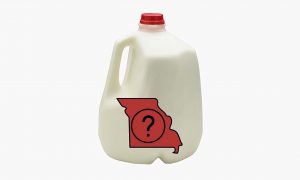
Now the National Family Farm Coalition is proposing the Milk from Family Dairies Act – a long-term solution that would set a minimum price that processors pay producers.
Lynne McBride – executive director of the California Dairy Campaign at the California Farmers’ Union – said it would also put in place an incentive-based system to guard against overproduction, which sends prices down.
“Our plan would send signals to dairy farmers across the country about the amount of milk that’s demanded in the market,” said McBride. “And any dairy farmer who’s interested in exceeding that wouldn’t be paid the same as all the dairy farmers who are meeting that level.”

The coalition would like to see the proposal included in the U.S. Farm Bill, which is being negotiated now and is expected to come to a vote in the fall.
Advocates say corporate consolidation has led to a situation where processing plants often operate as a monopoly in their region.
In 2001, big processors opposed a price floor proposal – saying that if they have to pay higher prices, it will cost consumers more at the grocery store and depress demand for milk.
McBride said small increases in milk production or decreases in dairy demand can cause prices paid to dairy farmers to plummet, as they have today. So, many family dairy farms have gone out of business or sold to larger competitors.
“Twenty years ago, we had over 2,200 dairies, and the average herd size was 600 cows,” said McBride. “Now we have 1,000 or so dairies, and the average herd size is 1,700 cows.”
According to the National Family Farm Coalition, nationally more than 70% of dairy farms have closed up shop. And 50% of all milk sales come from just 2,000 mega-dairies nationwide.























